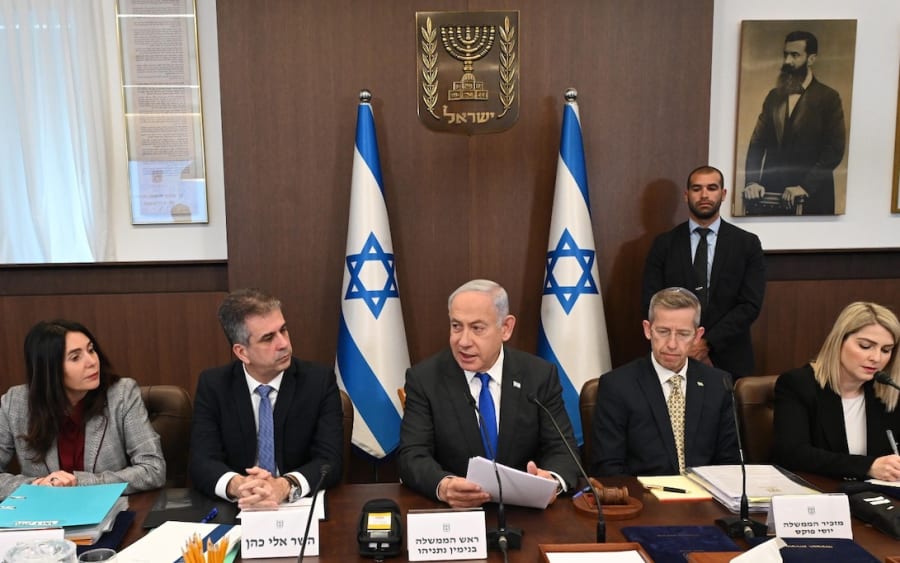Israel’s Cabinet approves IDF presence on Gaza-Egypt border; only DM Gallant votes against
Gallant advocates withdrawal from Philadelphi Corridor to reach hostage deal

Israel’s political-security cabinet on Thursday evening approved a plan to maintain a physical presence of IDF troops on the Philadelphi Corridor, along the Gazan border with Egypt, as part of a possible hostage deal.
While the vote was largely symbolic – given that the corresponding maps had already been drawn up, reportedly approved by the United States, and sent to the mediators – it nonetheless bolsters Prime Minister Benjamin Netanyahu's position, as he has been insisting on the issue throughout the recent negotiations.
The plan was approved with an 8-to-1 vote, with Defense Minister Yoav Gallant casting the only vote against it, while National Security Minister Itamar Ben Gvir abstained.
In recent weeks, Gallant has reiterated his stance, which he says also reflects the professional opinion of the security establishment, that the IDF can – and should – vacate the corridor in order to reach an agreement with Hamas that would result in the release of a significant number of the remaining 107 Israeli hostages.
Israel's Channel 12 also reported that during the discussion, Gallant brought up a document indicating the security establishment’s belief that Israel faced “imminent deterioration into a multifront war” if it didn’t agree to a hostage and truce deal with Hamas soon.
Hamas has so far categorically rejected the presence of Israeli soldiers at the corridor as part of a deal.
A source close to Ben Gvir explained his abstention, which might seem unexpected given his vocal opposition to the withdrawal of Israeli forces from Gaza in recent months.
“His abstention from the vote was because the proposal that was put to the vote included a gradual thinning of forces on the Philadelphi Corridor as part of a deal, so that during certain stages of the deal, if it comes to fruition – the amount of forces on the Philadelphi axis will be reduced. Minister Ben Gvir supports the full stay of the forces in the Philadelphia axis, and all over the Strip,” the source told Ynet News.
During the discussion before the vote, several Cabinet ministers reportedly claimed that the decision, in fact, made a deal more likely, as it showed Hamas that Israel wouldn’t budge and that the terrorist group would have to compromise, “just as it compromised on its demand to end the war.”
Netanyahu reiterated his conviction that the lack of control of the corridor is what enabled Hamas to arm itself, leading directly to the Oct. 7 tragedy. This situation “will not happen again,” he reportedly said.
According to other informed sources, the vote was intended to reassure Netanyahu’s right-wing voter base, Ynet News reported.
However, the source clarified that this does not mean Netanyahu wouldn’t be open to flexibility regarding Israeli withdrawals during the final stages of the negotiations.
The Cabinet decision was excoriated by the Hostages and Missing Families Forum.
“After close to a year of neglect, Netanyahu doesn’t miss a single opportunity to ensure that there won’t be a deal,” the Forum stated. “Not a day goes by in which Netanyahu doesn’t take concrete action to jeopardize the return home of all the hostages.”
On the other side of the political divide, the Tikva Forum, which represents more hawkish hostage families, welcomed the decision, emphasizing that the IDF's presence on the border “creates highly significant pressure on Hamas that could help return all the hostages home.”

The All Israel News Staff is a team of journalists in Israel.
You might also like to read this:














